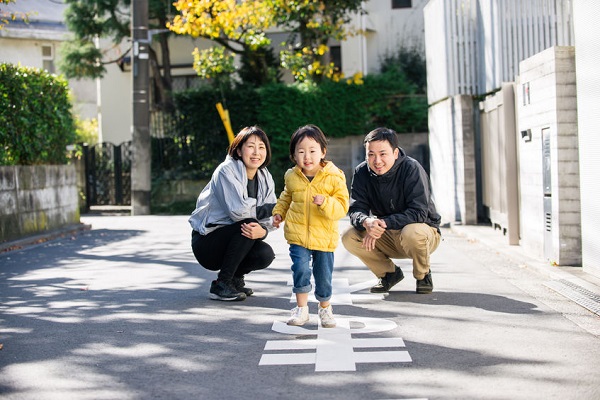Relocating to a far away place can be terrifying for most children. They are being taken away from the comfort of their home, home town, school, perhaps other members of the family and, of course, their friends.
We’ve put together a guide on things to consider when relocating with children - from moving day to school search, we’ve got you covered.
Before the move
Tell your children about the next family adventure
It is important for children to say goodbye to their previous home. Engage them in conversation about their thoughts and concerns. Don’t be afraid to mention that you are also nervous about the move while also emphasising the excitement of a new adventure.
Make it tangible by creating an album of happy memories. You could create a few and give them to friends or family members as a leaving present.
It is worth considering their age here. For younger children you may find story books around the theme of moving day helpful in explaining your upcoming change in home.
Get them involved in planning
Encourage them to draw pictures and fill out fact sheets about their new home. Make it fun!
Head onto Google Maps and view the new local playground or research where you can buy their favourite food – it’s nice to keep some existing rituals going. Your child will get more excited before they arrive and have a firmer idea of what to expect. Family moving should be a group experience.
Keep it visual
If your children haven’t yet seen their new home, show them photos or videos of the new home and their room, the school and parks nearby.
Printing out a map of the area also acquaints them with their surroundings. Show them where they will go to school, their local community and get them to highlight with pens and stickers.
Get creative
Allow your child’s creative flair to take control. Think about bringing home paint swatches so that your child can choose the colour of their new room. Let them pick out furniture so they start to look forward to their new life abroad.
Make a treasure box
Give your child their own miniature packing box that can be decorated with stickers, paints and pictures and used for a few of their favourite things. Ensure the box is small enough to place on the plane and travel with them to their new destination.

School planning
How to begin
Your children’s education will always be a priority, relocating abroad as a family does not need to derail their progress. However, to make sure you’re making the best choice, it’s worth taking the time to consider your options.
Should I choose a local or international school?
This is a vital decision that will decide what education your child receives.
- Local school: If a permanent move or for the duration of your children’s education you should consider a local school. Younger children can pick up new languages quickly and so should adapt to this environment well. You’ll find that it will help them to make friends, including new family friends, and adjust to their new culture easily too.
- International school: In most cases by choosing an international school your children can follow the curriculum set out by their home country. For many expatriates, learning English in an international school means their children are able to slip back into school easily if they return to their previous home.
There is also the option to take the international baccalaureate programme which is valid across the world. If you might be relocating again while your children are in education this may be the best option for you.
How can I prepare my children for an education abroad?
If it is possible, visit the new school you have chosen with your children. This will help ease them into their new environment. They will be able to meet their future teachers and get a feel for what their new school will be like.
When is the best time to move with children?
If your schedule is flexible enough you’ll want to plan your move around your children’s education. The best time to move that allows your children to have a smooth transition will be if it can coincide with the new school year.
This will mean everyone will be starting the year together and they are also likely not to be the only new student. Which will help them fit into their new school environment easier.
Most importantly, be patient
If you are moving abroad with children, don’t be surprised if they don’t settle in straight away. The theory generally goes, that the older the child the more likely the move is to pose challenges because they have a stronger connection to their previous home.
By preparing the children for the move, keeping their insecurity at a minimum, the whole process will run smoother and the move may well end up being the best choice your family has ever made!